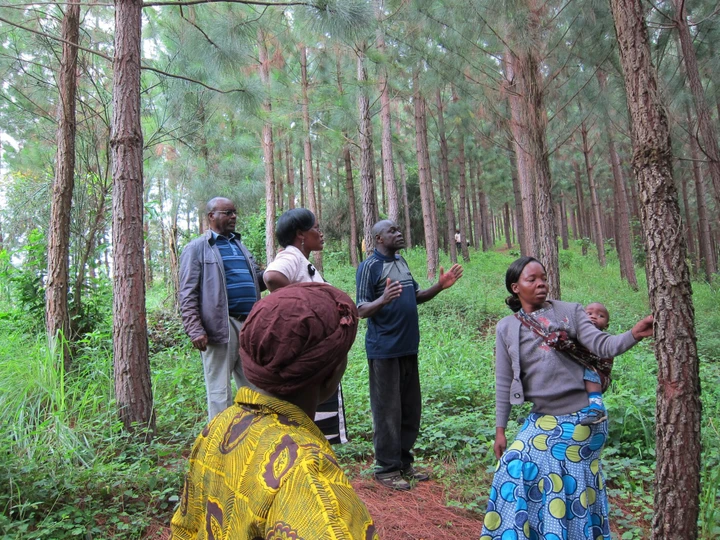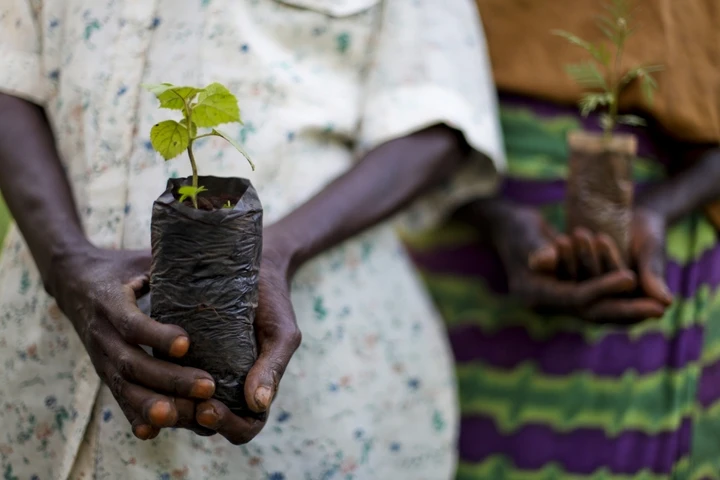TIST Program in Uganda

The TIST Program in Uganda stands out as a beacon of community-driven climate action, combining large-scale reforestation with social empowerment and sustainable development. Since its inception, TIST (The International Small Group and Tree Planting Program) has mobilized thousands of Ugandan farmers to plant millions of trees, restore degraded lands, and improve livelihoods-all while generating verified carbon credits that support long-term climate resilience.
Table of Contents
What Is the TIST Program?
TIST is a participatory reforestation and sustainable development initiative that began in Tanzania in 1999 and quickly expanded to Uganda, Kenya, and India due to high interest and proven results. In Uganda, TIST operates across 10 districts, engaging over 20,000 members from more than 1,600 villages.
The program empowers smallholder farmers to plant and maintain trees on their land, sequestering carbon, restoring biodiversity, and generating income through the sale of carbon credits.
Key Features:
- Community-Led: Farmers form small groups and clusters, sharing knowledge, resources, and leadership responsibilities.
- Inclusive Participation: The program is open to everyone, including non-landowners, women, and youth, who can participate through carbon contracts and revenue-sharing agreements
- Verified Carbon Credits: TIST’s afforestation and reforestation activities are monitored and verified annually, ensuring data-driven assurance and transparency

How Does TIST Work?
The model is built around small groups of farmers who voluntarily sign up, organize themselves, and receive training in nursery building, conservation farming, and sustainable land management. These groups:
- Plant a diverse range of tree species (over 10 million trees planted in Uganda, including indigenous and fruit trees)
- Monitor tree growth and survival, with local staff quantifying and verifying progress.
- Share 70% of carbon credit revenue directly with participants, creating a strong incentive to maintain and protect trees for the long term
Rotating Leadership and Gender Equality
TIST uses a rotating leadership model, ensuring that at least 50% of leaders are women. This approach promotes equality, capacity-building, and the development of local champions who mentor others in their communities
Environmental Impact
Carbon Sequestration
TIST Uganda has achieved an average annual greenhouse gas reduction of over 83,000 metric tonnes of CO₂e, totaling more than 5 million tonnes since inception.
The trees planted not only capture carbon but also help restore soil fertility, reduce erosion, and enhance water cycles.
Biodiversity Restoration
By planting a mix of species-including Pinus, Eucalyptus, Grevillea, Mango, and indigenous varieties-TIST promotes genetic diversity, habitat restoration, and ecosystem resilience.
The project’s focus on agroforestry means that trees are integrated with crops, supporting both wildlife and sustainable agriculture.
Social and Economic Benefits
Income Generation
Farmers receive annual payments per tree, plus a share of carbon credit revenue. Each tree creates additional value-estimated at $8 per tree-through fruits, nuts, fodder, traditional medicines, and sustainable wood products.
This diversified income helps alleviate poverty and increases economic stability for vulnerable households.
Empowerment and Inclusion
TIST’s unique approach allows non-landowners, often women and youth, to participate fully and benefit from tree planting and carbon revenue. The program’s inclusive structure ensures equal opportunity regardless of gender or social status.
Skills and Health
Participants receive training in conservation farming, nursery management, and the construction of fuel-efficient stoves, which reduce firewood demand and improve indoor air quality. It also provides education on health issues like malaria and HIV/AIDS prevention, further supporting community well-being.
Transparency and Accountability
TIST is recognized for its rigorous, data-driven monitoring. Local staff conduct annual, on-the-ground measurements to ensure carbon sequestration claims are accurate and verifiable.
The program’s revenue-sharing model and transparent reporting build trust and long-term commitment among participants.
Challenges and Opportunities
While TIST’s impact is profound, the program faces challenges:
- Market Reliance: The program depends on the carbon credit market for funding, which can be volatile.
- Implementation Complexity: Consistent application across diverse communities requires adaptive management and strong local leadership.
Despite these challenges, TIST’s scalable, community-driven approach offers a replicable model for climate action worldwide.
Conclusion: A Model for Sustainable Development
TIST in Uganda demonstrates how climate solutions can be both people-centered and planet-positive. By empowering smallholder farmers, promoting gender equality, and generating verified carbon credits, TIST delivers lasting environmental, social, and economic benefits. As climate change continues to threaten vulnerable regions, programs like TIST offer hope and a blueprint for inclusive, effective action.
Take action today, calculate your emissions using Coffset’s carbon footprint calculator and contribute to projects that make a real difference!
References:
Earthly: Agroforestry Smallholder Farmers
Thunder Said Energy: Assessment